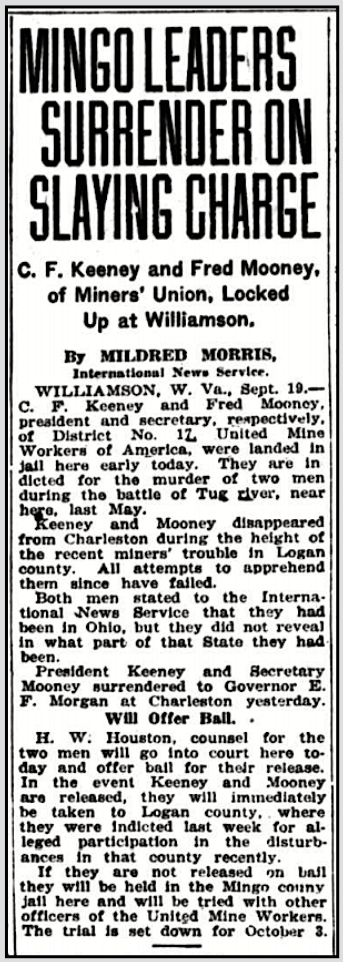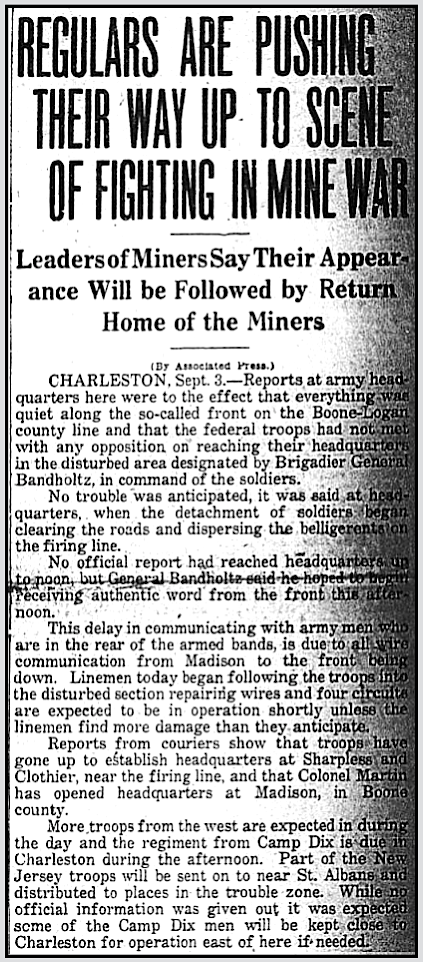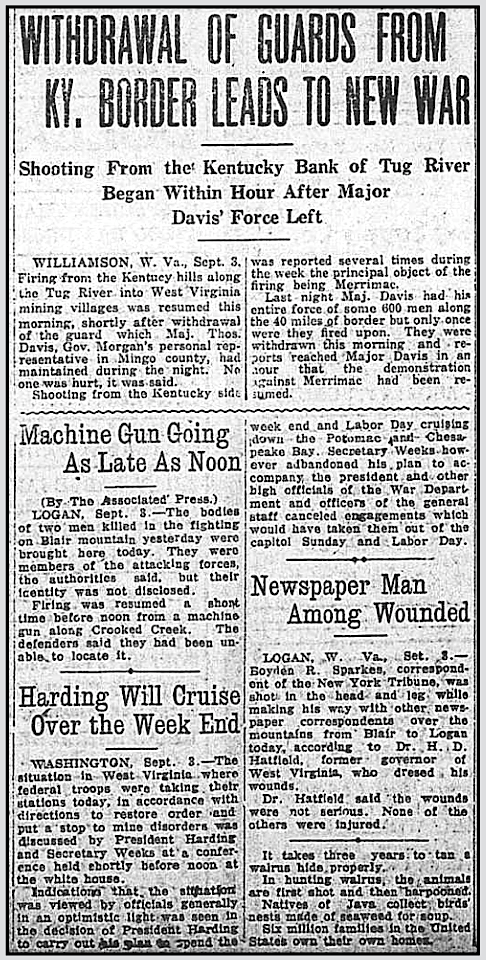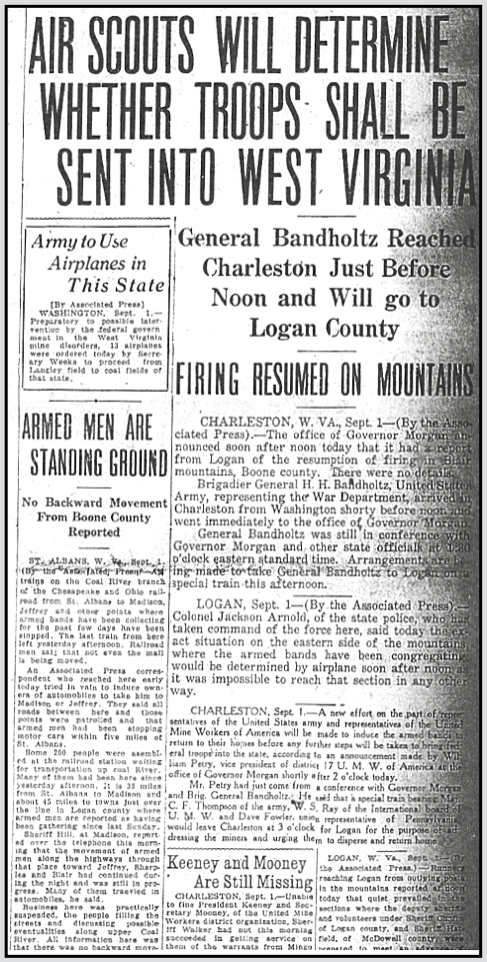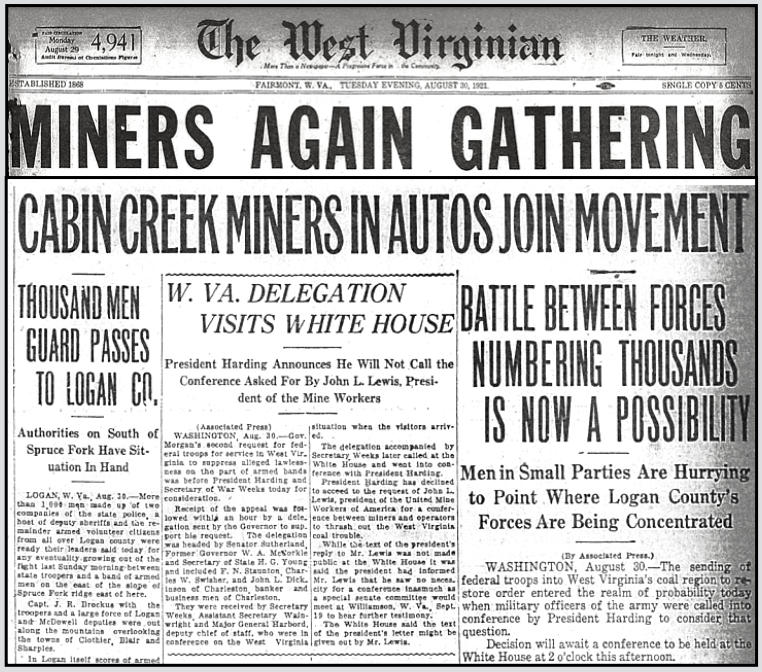 —————
—————
Hellraisers Journal – Sunday October 30, 1921
Winthrop D. Lane on West Virginia’s Coal Field War, Part I
From The Survey of October 1921:
[Part I of III.]
THE leaves are just beginning to turn on the steep hills which overlook the winding, narrow valleys of western West Virginia. Here lie some of the richest seams of bituminous coal in the world. Nature, as if to conceal her treasure, has covered all with a thick verdure of trees, impenetrable to the eye. But man has found his way into her recesses and has tunneled and bored her mountains until she has yielded her bounty. To do this an army of workmen has been employed, whose occupations have taken them underground, where day is turned into night. For thirty years many of these men have been engaged in a conflict with their employers over their right to belong to the mine workers’ union.
I have just visited the latest scenes of this conflict. Ten months ago I had spent several weeks there at a time when the huge mouths of black mines gaped in snow-clad hills. During the interval one county has been placed under martial law; violence has been rampant in a part of the state; federal troops have been called in and are still there; thousands of miners have joined in across-country march in protest against what they regarded as a violation of the rights of their fellows; engagements have been fought with airplanes and machine-guns. The conflict is farther from settlement than ever. Animosities have become keener; the atmosphere of the struggle has grown more intense. There are more arms in the troubled regions of West Virginia today, I think, than ever before.
Force is the weapon chiefly relied upon to settle the dispute.When it is not force of a direct kind, it is indirect force or repression. Jails stand crowded. Arrests are made on a wholesale scale. Grand juries vie with each other in returning indictments. The state is reorganizing her national guard. These measures are wholly divorced from any general or peaceful plan of adjustment. The acme of statesmanship seems to lie in suppressing disorder. As one goes about the state, he finds a sinister and corroding cynicism in the minds of many people. Weary of the long struggle, they no longer expect an immediate or friendly settlement. The causes of the conflict grow and fester while only the surface manifestations are given attention. Every step in the direction of settlement is a step toward the use of force, and it is force that has brought the struggle to its present proportions.
There is a tragic interest in some of the features of the conflict. Miners who joined the union and were refused recognition by the operators went on strike. They were compelled to leave their company owned houses, and are still living with their families in tent colonies along the Tug River and on the hill sides of Mingo County. It was a surprise to see, after the lapse of ten months, the same faces peering out of the same tents that were exposed to the cold and wet last winter. For more than a year now many of these men, women and children have been living in their slight and flapping shelters; they have withstood every argument of weather and unemployment to return to work. Women held up their babies and asked the visitor to see how they had grown during the interval. Men explained that they had not been entirely idle, and pointed to new floors in their tents and to other improvements.

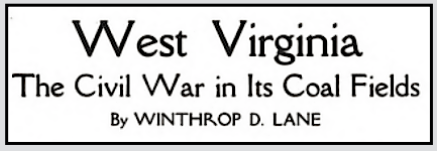
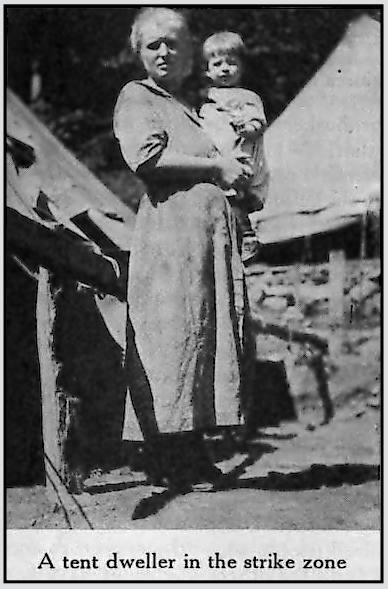
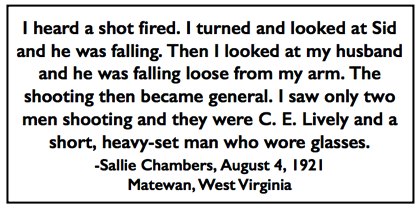 —————
—————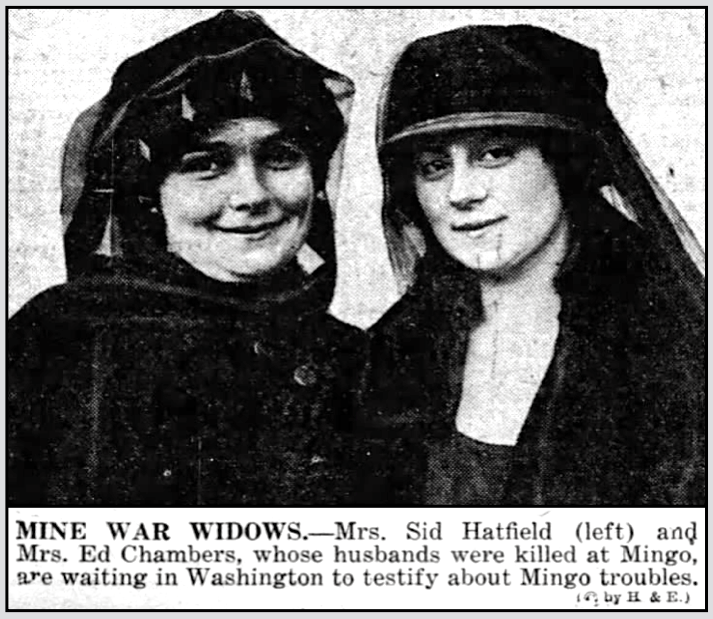
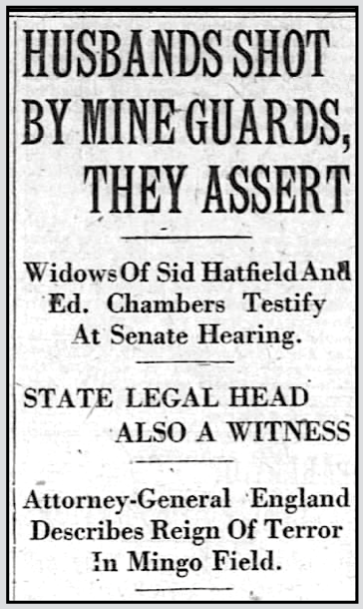
 —————
—————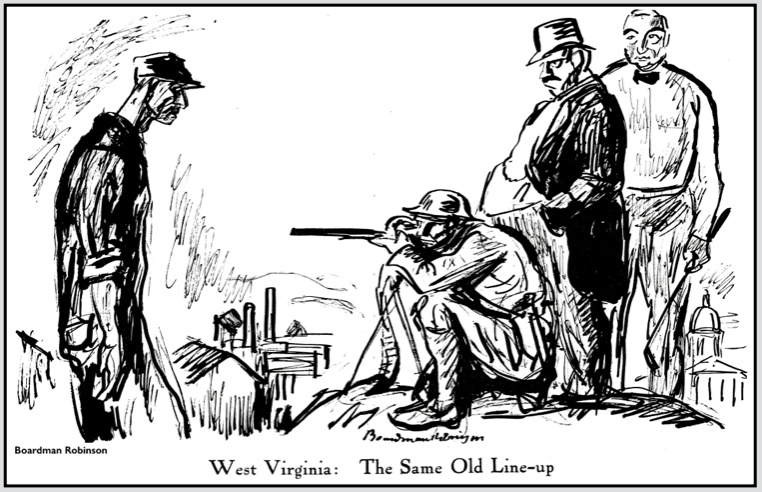
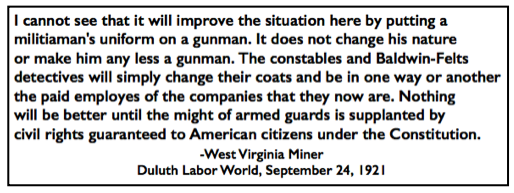 —————
—————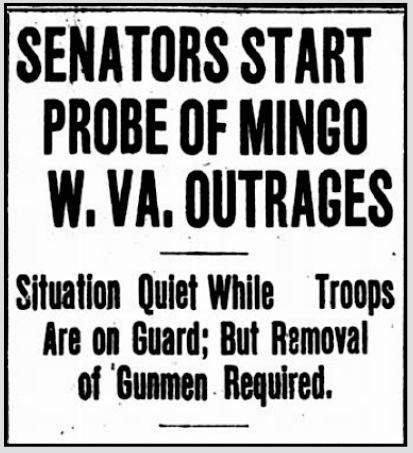
 —————
—————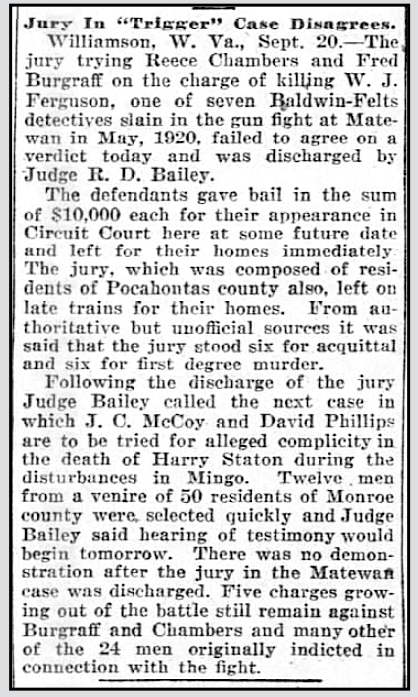
 —————
—————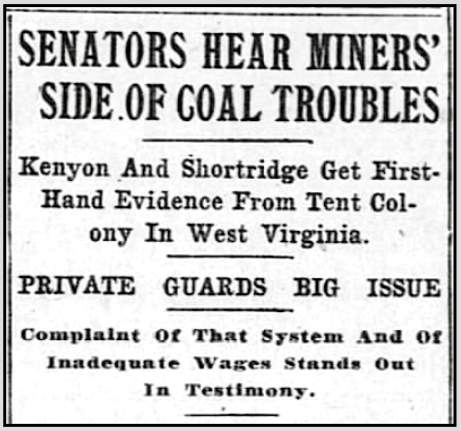
 —————
—————